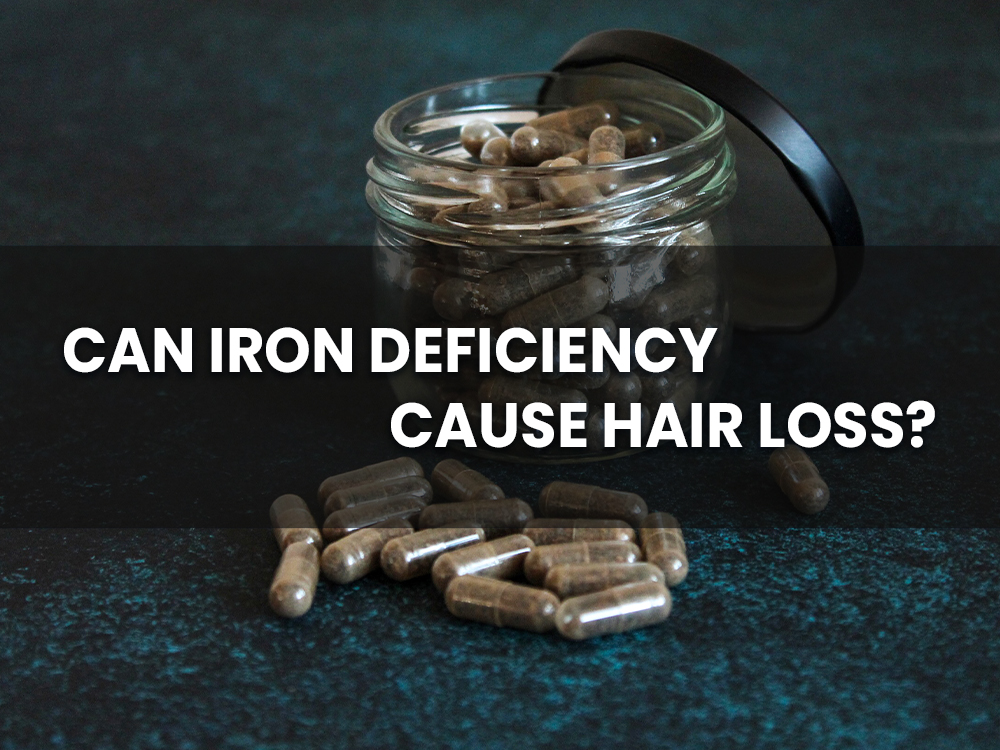
Hair loss can be a distressing experience, and there are many factors that can contribute to this condition. One such factor that often goes unnoticed is iron deficiency. Understanding the link between iron deficiency and hair loss is crucial in addressing and treating this issue effectively.
Understanding Iron Deficiency
Sufficient iron levels are essential for various bodily functions, including healthy hair growth. To comprehend the connection between iron deficiency and hair loss, it is important to first understand what iron deficiency is.
What is Iron Deficiency?
Iron deficiency occurs when the body lacks an adequate amount of iron to support its normal functions. Iron is a vital mineral that helps carry oxygen to different parts of the body, including the hair follicles. Without enough iron, these follicles may not receive the necessary nourishment, leading to hair loss.
Iron deficiency can manifest in various ways beyond hair loss. Some individuals may experience shortness of breath, dizziness, headaches, cold hands and feet, and an increased susceptibility to infections. In severe cases, iron deficiency can lead to anemia, a condition where the body lacks enough healthy red blood cells to carry adequate oxygen to tissues.
Symptoms of Iron Deficiency
Identifying iron deficiency early on is crucial in preventing and treating associated hair loss. Common symptoms of iron deficiency include fatigue, weakness, pale skin, brittle nails, and even restless leg syndrome. If you notice these symptoms, it’s essential to consult with a healthcare professional for proper diagnosis and treatment.
It’s important to note that iron deficiency can often be diagnosed through blood tests that measure the levels of ferritin, a protein that stores iron in the body. Treatment for iron deficiency typically involves iron supplementation either through oral supplements or intravenous injections, along with dietary changes to include more iron-rich foods like red meat, poultry, fish, lentils, and spinach.
The Role of Iron in Hair Health
Having understood iron deficiency, it’s important to delve into the role iron plays in maintaining healthy hair.
Iron is an essential mineral that plays a crucial role in the health of our hair. Beyond its general importance in the body, iron specifically impacts the growth and strength of our hair strands. Understanding how iron functions in this context can help us appreciate the significance of maintaining adequate levels of this mineral for optimal hair health.
Iron and Hair Growth
Iron is integral to hair growth and maintaining the overall health of the hair. It aids in the transportation of oxygen and nutrients to the hair follicles, ensuring their optimal functioning. When iron levels are low, the hair follicles receive insufficient nourishment, leading to weakened hair and, in some cases, hair loss.
Furthermore, iron contributes to the production of collagen, a key component in the structure of hair strands. Collagen provides the necessary framework for hair growth and strength, and iron plays a vital role in ensuring its production. This connection underscores the importance of iron in not just nourishing the hair from within but also in supporting its structural integrity.
How Iron Nourishes the Hair
Iron is involved in the production of keratin, a protein that makes up the structure of the hair. It also plays a role in activating enzymes necessary for hair growth. Furthermore, iron supports the production of red blood cells, which carry oxygen to the scalp and hair follicles. Adequate iron levels contribute to strong, vibrant hair.
Moreover, iron deficiency can disrupt the hair growth cycle, leading to increased shedding and slower regrowth. By understanding the intricate relationship between iron levels and hair health, individuals can make informed choices to support their hair’s well-being through proper nutrition and, when necessary, supplementation.
Iron Deficiency and Hair Loss: The Connection
Scientific research has established a strong link between iron deficiency and hair loss. Understanding the connection can help individuals take necessary steps to address this issue.
The Science Behind Iron Deficiency and Hair Loss
Iron deficiency disrupts the hair growth cycle, leading to excessive shedding and reduced hair density. This is known as telogen effluvium, a condition where more hair follicles enter a resting phase, resulting in increased hair loss. Restoring iron levels can often reverse this condition and promote hair regrowth.
Who is at Risk of Hair Loss due to Iron Deficiency?
Iron deficiency-induced hair loss can affect individuals of any gender. However, certain groups are at a higher risk. Women, especially those with heavy menstrual bleeding, pregnant women, and those who have recently given birth are more prone to iron deficiency and associated hair loss. People with conditions that affect iron absorption, such as celiac disease, are also at risk.
It is essential to note that iron deficiency can also impact the overall health and well-being of an individual beyond just hair loss. Fatigue, weakness, pale skin, and cold hands and feet are common symptoms of iron deficiency anemia. This condition occurs when the body does not have enough iron to produce hemoglobin, the protein in red blood cells that carries oxygen to tissues throughout the body.
Diagnosing and Treating Iron Deficiency
Diagnosing iron deficiency typically involves a blood test to measure the levels of ferritin, a protein that stores iron in the body. Treatment often includes iron supplementation either through oral supplements or intravenous infusion in severe cases. It is crucial to consult a healthcare provider before starting any iron supplementation to determine the appropriate dosage and address any underlying causes of iron deficiency.
Diagnosing Iron Deficiency-Induced Hair Loss
Proper diagnosis is crucial in confirming iron deficiency as the cause of hair loss and determining the most appropriate course of action.
Iron deficiency is a common cause of hair loss, particularly in women. When the body lacks sufficient iron, it can disrupt the hair growth cycle, leading to excessive shedding and thinning of the hair. Recognizing the signs of iron deficiency, such as fatigue, pale skin, and brittle nails, can help in identifying the underlying issue.
Calculate the number of grafts needed for your hair transplant and get an estimated cost for various destinations. Try hair graft calculator
Medical Tests and Procedures
To diagnose iron deficiency, a healthcare professional may order blood tests to measure hemoglobin and ferritin levels. Hemoglobin measures the amount of iron in the blood, while ferritin indicates the body’s iron storage levels. These tests, along with a thorough medical history, help in making an accurate diagnosis.
In some cases, additional tests such as a complete blood count (CBC) or iron studies may be conducted to assess iron levels comprehensively. These tests provide valuable information about the body’s iron stores and can help determine the severity of the deficiency.
Interpreting the Results
Interpreting blood test results requires expertise, and it’s important to rely on a healthcare professional for accurate diagnosis. Low levels of hemoglobin and ferritin are typically indicative of iron deficiency, warranting further investigation and treatment.
If iron deficiency is confirmed as the cause of hair loss, treatment may involve iron supplementation and dietary changes to boost iron levels in the body. It’s essential to follow the healthcare provider’s recommendations closely to address the deficiency effectively and promote hair regrowth.
Treatment and Prevention of Iron Deficiency
Addressing iron deficiency is crucial in treating and preventing hair loss associated with this condition. Iron plays a vital role in the production of hemoglobin, a protein in red blood cells that carries oxygen to tissues throughout the body, including the hair follicles. When iron levels are low, the hair follicles may not receive an adequate supply of oxygen and nutrients, leading to hair thinning and loss.
Iron deficiency can be caused by various factors, such as inadequate dietary intake, poor absorption due to certain medical conditions, or blood loss from heavy menstrual periods or internal bleeding. Identifying the underlying cause of iron deficiency is essential in developing an effective treatment plan to restore iron levels and promote hair growth.
Iron-Rich Foods for Hair Health
A diet rich in iron can help maintain optimal iron levels and promote hair health. Iron-rich foods include lean meats, fish, legumes, leafy greens, and fortified cereals. Combining these foods with foods high in vitamin C, such as citrus fruits, strawberries, and bell peppers, is beneficial as vitamin C enhances iron absorption in the body. Including a variety of iron-rich foods in your daily meals can support overall health and contribute to luscious locks.
In addition to iron, other nutrients like zinc, biotin, and protein are also essential for healthy hair growth. Zinc helps maintain the structural integrity of hair proteins, biotin supports keratin production, and protein provides the building blocks for strong and shiny hair. Incorporating a balanced diet that includes a variety of nutrients is key to promoting optimal hair health.
Iron Supplements and Hair Loss
In cases of severe iron deficiency, supplementation may be necessary. Iron supplements should only be taken under the guidance of a healthcare professional to ensure appropriate dosage and minimize side effects. It is important to note that excessive iron intake can be harmful and lead to toxicity, so medical supervision is crucial when supplementing with iron.
Regular monitoring of iron levels is essential to track improvements and adjust treatment accordingly. Blood tests can help determine iron levels in the body and evaluate the effectiveness of supplementation. It may take several weeks to months of consistent iron therapy to replenish iron stores and see noticeable improvements in hair growth and overall health.
Iron deficiency can indeed cause hair loss. Understanding the link between iron deficiency and hair health is crucial in addressing this issue effectively. By recognizing the symptoms, seeking proper diagnosis, and following appropriate treatment and prevention measures, individuals can improve their iron levels and promote healthy hair growth.




